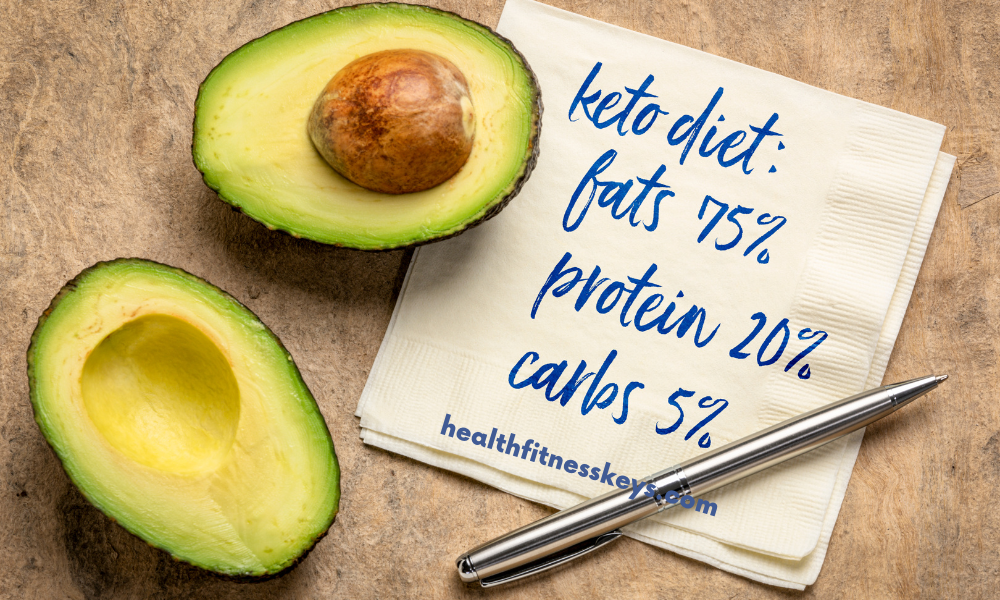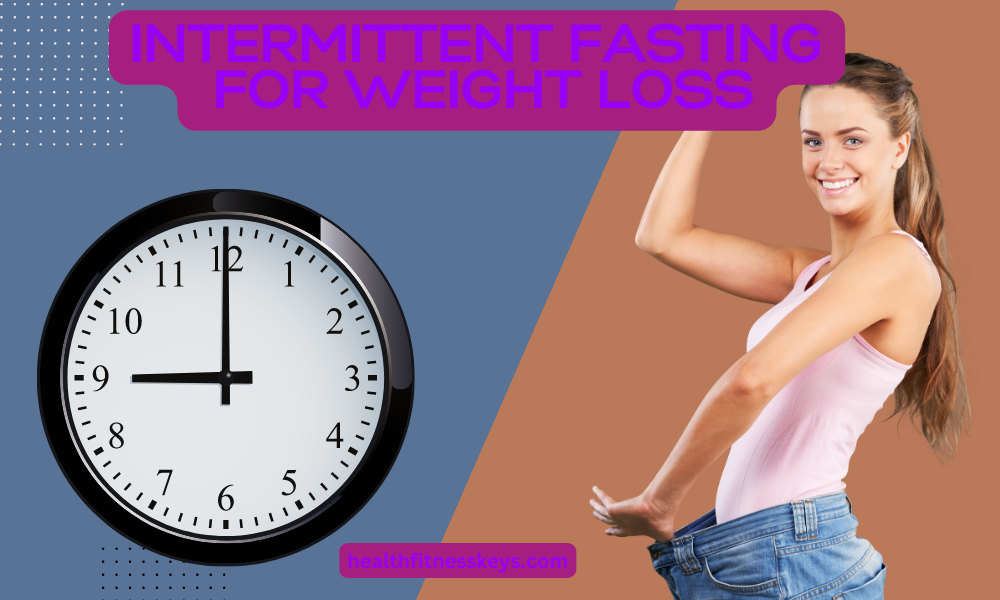Obesity has become a major health concern in the modern world. It is a leading cause of chronic diseases such as diabetes, heart disease, and high blood pressure. A healthy diet and regular exercise can help in maintaining a healthy weight, but it can be challenging to achieve and maintain weight loss goals. The ketogenic diet, commonly known as the keto diet, has become increasingly popular for weight loss in recent years. In this article, we will provide a comprehensive guide to the keto diet and its effectiveness in weight loss.
What is the Keto Diet?
The ketogenic diet is a low-carbohydrate, high-fat diet that aims to put the body into a state of ketosis. It involves reducing carbohydrate intake to less than 50 grams per day and increasing fat intake to up to 70% of total calorie intake. The remaining calories come from protein. The primary goal of the keto diet is to force the body to burn fat for fuel instead of carbohydrates.
How Does the Keto Diet Work?
The keto diet works by forcing the body to enter a metabolic state called ketosis. In ketosis, the body burns fat for fuel instead of carbohydrates. Normally, the body uses carbohydrates as its primary source of energy. However, when carbohydrate intake is restricted, the body switches to burning fat for energy.
When carbohydrate intake is low, the body releases ketones into the bloodstream. Ketones are byproducts of fat metabolism, and they are used by the body for energy in the absence of glucose. In ketosis, the body produces more ketones than usual, which can be measured using a blood ketone meter.
What are Ketones?
Ketones are molecules produced by the liver from fatty acids during periods of low carbohydrate intake. They serve as an alternative fuel source for the body when glucose (from carbohydrates) is limited. Ketones are used to power the brain and other organs when the body is in a state of ketosis.
How does Keto Diet Work for Weight Loss?

The keto diet is effective for weight loss because it helps the body to burn fat for fuel. When the body is in a state of ketosis, it burns stored fat for energy instead of glucose from carbohydrates. This results in a significant reduction in body fat.
In addition, the keto diet can lead to reduced appetite and calorie intake. Studies have shown that the keto diet can lead to a reduction in appetite due to the increased consumption of protein and fat. Protein and fat are more satiating than carbohydrates, which can lead to a decrease in calorie intake.
The keto diet also helps to reduce insulin levels in the body. Insulin is a hormone that regulates blood sugar levels. When insulin levels are high, the body stores excess glucose as fat. By reducing carbohydrate intake, the keto diet helps to lower insulin levels, which can lead to a decrease in body fat.
Keto Diet for Diabetes
he keto diet can be an effective dietary intervention for people with diabetes. Diabetes is a condition characterized by high blood sugar levels. In type 1 diabetes, the body does not produce enough insulin, while in type 2 diabetes, the body becomes resistant to insulin.
The keto diet can help to lower blood sugar levels and improve insulin sensitivity in people with type 2 diabetes. By reducing carbohydrate intake, the keto diet helps to lower blood sugar levels and reduce the need for insulin medication. Studies have shown that the keto diet can lead to significant improvements in blood sugar control in people with type 2 diabetes.
Other Health Benefits of Keto Diet
The keto diet has been associated with numerous health benefits in addition to weight loss. Some of the other health benefits of the keto diet include:
1. Improved heart health
The keto diet can lead to a reduction in LDL cholesterol levels (the “bad” cholesterol) and an increase in HDL cholesterol levels (the “good” cholesterol), which can improve heart health.
2. Reduced inflammation
The keto diet has been shown to reduce inflammation levels in the body, which can have a positive impact on chronic diseases such as arthritis, asthma, and some types of cancer.
3. Reduced risk of seizures
The keto diet has been used as a treatment for epilepsy for decades. It has been shown to reduce the frequency and severity of seizures in both children and adults with epilepsy.
Potential cancer-fighting properties
The keto diet has been used as a treatment for epilepsy for decades. It has been shown to reduce the frequency and severity of seizures in both children and adults with epilepsy.
Keto Diet Drawbacks
Despite its potential benefits, the keto diet also has some drawbacks that should be considered. Some of the potential drawbacks of the keto diet include:
- Nutrient deficiencies – The keto diet can be low in certain nutrients such as vitamins and minerals that are typically found in high-carbohydrate foods. It is important to ensure that nutrient needs are met through the consumption of nutrient-dense foods or supplements.
- Difficulty in maintaining the diet – The keto diet can be challenging to maintain long-term due to the restrictive nature of the diet. It may also be challenging to socialize or eat out while following the diet.
- Adverse effects – Some people may experience adverse effects while on the keto diet, such as constipation, headaches, and fatigue.
- Risk of overconsumption of unhealthy fats – While the keto diet promotes the consumption of healthy fats such as avocados, nuts, and seeds, it can also lead to the overconsumption of unhealthy fats such as processed meats and fried foods.
These side effects are usually temporary and can be minimized by staying hydrated and consuming enough electrolytes. It is also important to gradually transition to the keto diet to allow the body to adjust.
How to Start Keto Diet
If you are considering starting the keto diet, it is important to speak with a healthcare provider to ensure that it is safe for you to do so. Once you have the green light, here are some tips for getting started on the keto diet:
1. Calculate your macronutrient needs
Use an online calculator to determine your daily macronutrient needs (fat, protein, and carbohydrate). In general, the keto diet recommends consuming 70-75% of calories from fat, 20-25% of calories from protein, and 5-10% of calories from carbohydrates.
2. Start slowly
It can be challenging to switch to a low-carbohydrate diet overnight. Consider gradually reducing your carbohydrate intake over several days or weeks to make the transition easier.
3. Focus on nutrient-dense foods
The keto diet should be based on nutrient-dense foods such as non-starchy vegetables, healthy fats, and high-quality protein sources.
4. Monitor your ketone levels
Use a blood ketone meter to monitor your ketone levels and ensure that you are in a state of ketosis.
Foods to Eat in Keto Diet
The following foods are recommended on the keto diet:
- Healthy fats – Avocado, nuts, seeds, coconut oil, olive oil, grass-fed butter, ghee.
- Non-starchy vegetables – Leafy greens, broccoli, cauliflower, zucchini, mushrooms, bell peppers.
- Protein sources – Grass-fed beef, wild-caught fish, organic chicken, eggs, tofu.
- Dairy products – Cheese, full-fat Greek yogurt, heavy cream.
Foods to Avoid in Keto Diet
While the keto diet is flexible and can include a variety of healthy, whole foods, there are certain foods that should be avoided in order to maintain a state of ketosis. These include:
- Sugary foods and beverages – Sugar is a carbohydrate and can quickly kick the body out of ketosis. This includes candy, desserts, fruit juice, soda, and other sweetened beverages.
- Grains and starchy vegetables – Foods such as bread, pasta, rice, potatoes, and corn are high in carbohydrates and should be limited or avoided on the keto diet.
- High-carb fruits – While fruit is generally considered a healthy food, some fruits are higher in carbohydrates than others. Examples of high-carb fruits include bananas, grapes, and mangoes.
- Processed foods – Processed foods such as chips, crackers, and snack bars are often high in carbohydrates and should be avoided on the keto diet.
- Alcohol – Alcohol is high in calories and can disrupt the body’s ability to stay in a state of ketosis. While some low-carb alcoholic beverages may be allowed in moderation, it is best to avoid alcohol altogether on the keto diet.
By avoiding these foods and focusing on whole, nutrient-dense foods such as meats, fish, vegetables, and healthy fats, individuals can achieve and maintain a state of ketosis and reap the benefits of the keto diet.
Keto Diet Meal Plan
The Custom Keto Diet plan is a highly recommended option for individuals looking to achieve their weight loss goals while also improving their overall health and well-being. By tailoring the meal plan to an individual’s unique needs and preferences, the Custom Keto Diet plan provides a flexible and sustainable approach to the keto diet. With a wide variety of delicious and nutritious meals that are easy to prepare and fit within their daily calorie and macronutrient needs, users can expect to experience faster weight loss, increased energy, improved digestion, reduced inflammation, and improved blood sugar control.
Related Topics: Cutom Keto Diet Plan
FAQs
Below are some frequently asked questions about the keto diet that may be helpful:
Q1. Is the keto diet safe for everyone?
Ans. The keto diet may not be suitable for everyone, particularly those with certain medical conditions. It is important to consult with a healthcare provider before starting the diet.
Q2. Can I eat fruit on the keto diet?
Ans. Certain fruits that are low in carbohydrates, such as berries and citrus fruits, can be consumed in moderation on the keto diet.
Q3. Is the keto diet sustainable in the long-term?
Ans. The sustainability of the keto diet can vary from person to person. While some individuals may find the diet easy to maintain, others may struggle with the strict guidelines and potential nutrient deficiencies. It is important to consult with a healthcare provider and consider the individual’s lifestyle and preferences before committing to the diet long-term.
Q4. Can the keto diet be modified for vegetarians or vegans?
Ans. Yes, the keto diet can be modified to accommodate vegetarian or vegan lifestyles. Plant-based sources of protein and healthy fats, such as nuts, seeds, and avocado, can be included in the diet.
Q.5 Is it necessary to track macronutrients on the keto diet?
Ans. Yes, tracking macronutrients, including carbohydrates, fat, and protein, is important on the keto diet to ensure that the body stays in a state of ketosis.
Q6. Can the keto diet cause bad breath?
Ans. Yes, the keto diet can cause bad breath, commonly referred to as “keto breath,” due to the production of ketones in the body.
Q7. Is it necessary to supplement with electrolytes on the keto diet?
Ans. Due to the diuretic effect of the keto diet, electrolyte imbalances can occur. Supplementing with electrolytes, including sodium, potassium, and magnesium, can help prevent these imbalances.
Q8. Can the keto diet help with heart health?
Ans. The keto diet may help improve heart health by reducing inflammation and improving cholesterol levels. However, it is important to consult with a healthcare provider before starting the diet if you have a history of heart disease.
Q9. Can the keto diet improve mental clarity and focus?
Ans. Some individuals may experience improved mental clarity and focus on the keto diet, potentially due to the increase in healthy fats and reduction in carbohydrates.
Q10. Can the keto diet lead to muscle loss?
Ans. The keto diet may lead to muscle loss if protein intake is not adequate. It is important to include protein-rich foods in the diet and consider consulting with a healthcare provider or registered dietitian to ensure adequate protein intake.


